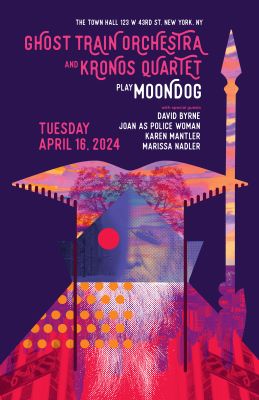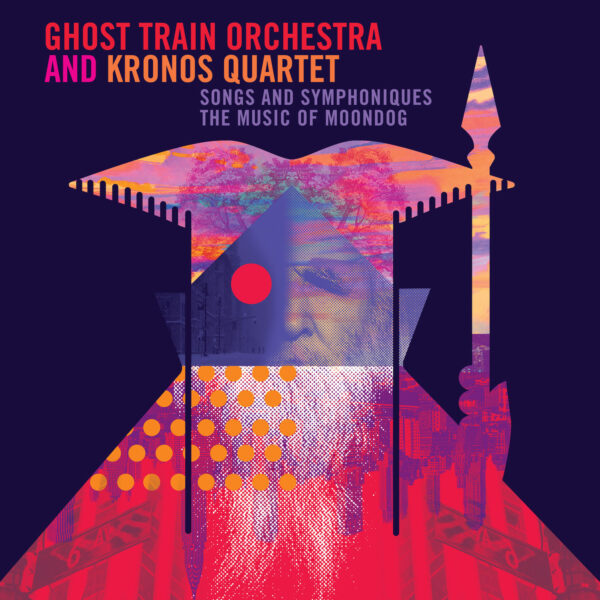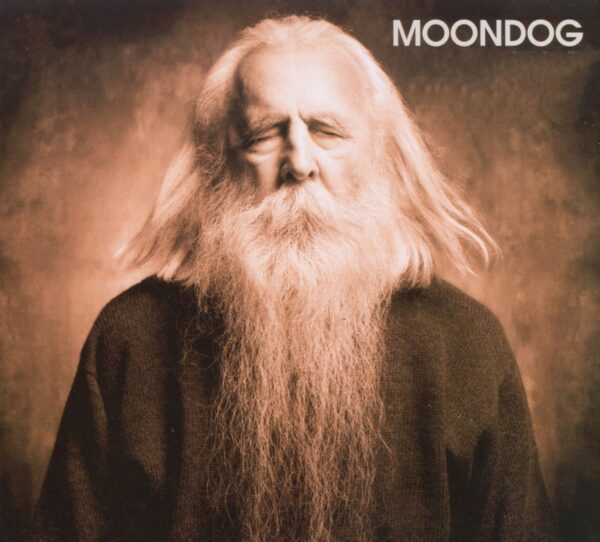FLY ME TO THE MOONDOG
Kronos Quartet and the jazz-chamber ensemble Ghost Train Orchestra will perform Music of Moondog at The Town Hall on Tuesday, April 16 at 8 p.m. The concert will be the first time both ensembles collaborate to present their album Songs and Symphoniques: The Music of Moondog live in New York City. The performance will also feature David Byrne, and some of the special guests on the new recording, including Joan Wasser (a.k.a. Joan as Police Woman), Karen Mantler and Marissa Nadler. For tickets (starting at $62.90), visit Town Hall.
The album features brilliant new re-imaginings of the music of Louis Hardin a.k.a. Moondog, the blind composer who lived on the streets of Manhattan and became a fixture on 6th Avenue, dressed in striking Viking attire while selling his records and reciting poetry. His beautiful and sprawling output of haunting madrigals, songs, symphoniques, and string quartets inspired the minimalists Philip Glass and Steve Reich, who cited his work from the 1940s and 1950s as a significant influence on their music. Reich called Moondog “the godfather of minimalism.”
Both ensembles have an intimate knowledge of the music. Ghost Train Orchestra has performed Moondog’s music several times in concert. The San Francisco-based Kronos Quartet recorded a piece the composer wrote for them in 1998. The album and concert showcases the work of five arrangers from Ghost Train Orchestra revisiting Moondog’s vital and uplifting music for a new generation.
Songs and Symphoniques: The Music of Moondog and Kronos Quartet’s subsequent tour have a special meaning as they are part of the group’s 50th-anniversary season. Moreover, this concert at The Town Hall will be one of the last Kronos shows featuring longtime members violinist John Sherba and violist Hank Dutt, who will be retiring from the group at the end of June.
Kronos Quartet (Lenny Gonzalez)
In a conversation with Kronos Quartet’s founder and artistic director David Harrington captured in the booklet accompanying Songs and Symphoniques, Brian Carpenter, the leader of Ghost Train Orchestra, notes that Moondog is “someone who wrote music across genres – chamber music, jazz, songs with lyrics, choir music, music for percussion.” And while his music eludes a specific style, “everything has his unmistakable signature. There are not many artists who have the ability to write in all of these different styles convincingly.”
The backstory of the piece began with Harrington writing to Moondog, who at the time was already living in Germany, where Kronos would be soon be performing. The exchange led to dinner and the composer attending one of the quartet’s concerts.
“And then he went home, and he wrote two pieces for us, and in two weeks, we received the manuscripts. ‘Synchrony No. 2’ is the one that’s on the Early Music album,” said Harrington. “It was just this instant connection. So when Brian Carpenter mentioned the idea of a large exploration, I just thought ’” Wow, this is cool, because I knew there was a lot of music that I had never heard and had no idea what it was like, and that it would be a really great adventure for us.”
For Carpenter, who has called himself “a kind of evangelist for Moondog,” recording and performing Moondog’s music was a fitting project for these ensembles.
“It’s New York music, but there was no band in New York, or even in the States, performing it,” he said. “That seemed wrong to us. It seemed like we had the right personalities and the right instrumentation to take on the music.”
Ghost Train Orchestra (Reuben Radding)
An idiosyncratic composer, musician, performer, poet, inventor of musical instruments, and compelling countercultural figure, Louis Thomas Hardin, aka Moondog, lived on and off the streets of Manhattan for roughly thirty years. In the 1960s, he made himself a New York City living monument, albeit a performing one, staking his place for a while right on 6th Avenue and 53rd Street. A blind, tall, white-bearded Viking in a black tunic, double-horned headdress, holding an eight-foot spear, he may have been dismissed by many who walked by him then as just another New York City curiosity. But Moondog, an honorary member of the New York Philharmonic at Carnegie Hall in the late 1940s, was a profoundly original artist whose work, captured on several records beginning in the mid-50s, earned him the respect of major musicians, including Benny Goodman, Charlie Parker, and Leonard Bernstein.
Moondog drew inspiration from Native American music, jazz (most apparent in his early recordings), classical music, and sounds from his surroundings, ranging from city traffic and subway trains to babies crying. The requirements of his creations led him to invent several musical instruments, some of which were played on studio albums or in live performances.
Glass, in whose apartment Moondog stayed for a year, told Robert Scotto, Moondog’s biographer, that he “learned more from Moondog than he did at Juilliard.” In fact, Moondog inspired broadly disparate artists, including jazz organist Jimmy McGriff, guitarist and composer Frank Zappa (who called his work “Dada clockwork”), producer Daniel Lanois, and singer Janis Joplin, who recorded “All Is Loneliness,” one of Moondog’s early compositions, on her first album with The Holding Company.
Moondog, who took the moniker in honor of his childhood pet, “who used to howl at the moon more than any dog I knew of,” was born in Kansas on May 26, 1916. After years in New York City and upstate New York, he moved to Germany in 1974 and died in Münster on September 8, 1999.



